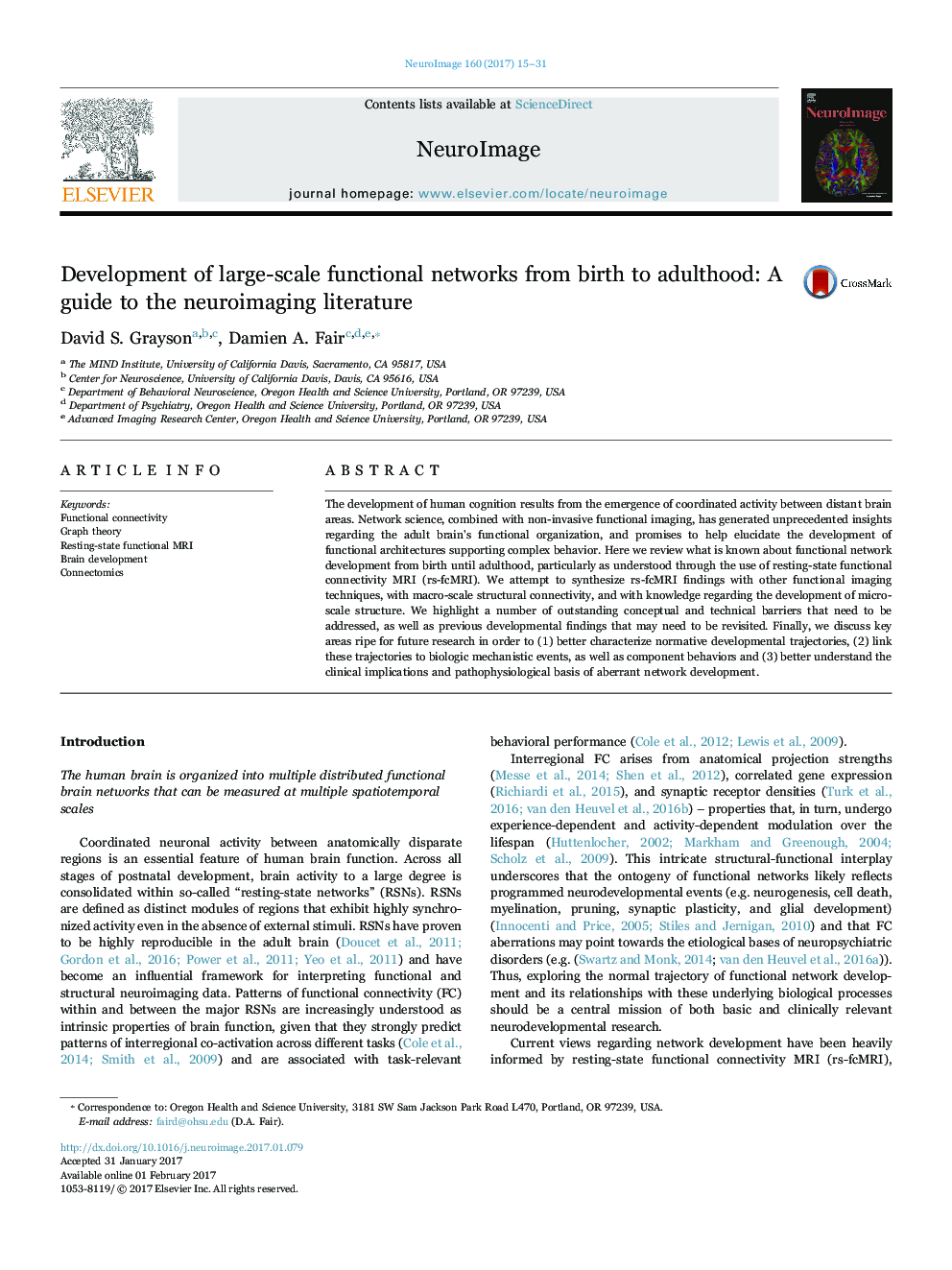| Article ID | Journal | Published Year | Pages | File Type |
|---|---|---|---|---|
| 8687478 | NeuroImage | 2017 | 17 Pages |
Abstract
The development of human cognition results from the emergence of coordinated activity between distant brain areas. Network science, combined with non-invasive functional imaging, has generated unprecedented insights regarding the adult brain's functional organization, and promises to help elucidate the development of functional architectures supporting complex behavior. Here we review what is known about functional network development from birth until adulthood, particularly as understood through the use of resting-state functional connectivity MRI (rs-fcMRI). We attempt to synthesize rs-fcMRI findings with other functional imaging techniques, with macro-scale structural connectivity, and with knowledge regarding the development of micro-scale structure. We highlight a number of outstanding conceptual and technical barriers that need to be addressed, as well as previous developmental findings that may need to be revisited. Finally, we discuss key areas ripe for future research in order to (1) better characterize normative developmental trajectories, (2) link these trajectories to biologic mechanistic events, as well as component behaviors and (3) better understand the clinical implications and pathophysiological basis of aberrant network development.
Keywords
Related Topics
Life Sciences
Neuroscience
Cognitive Neuroscience
Authors
David S. Grayson, Damien A. Fair,
